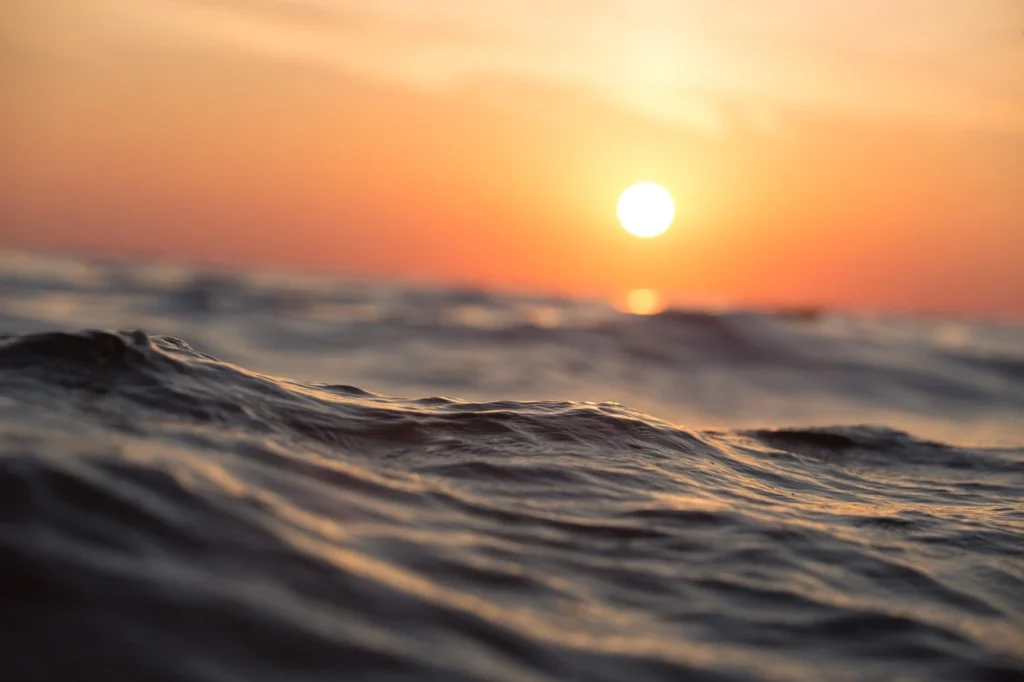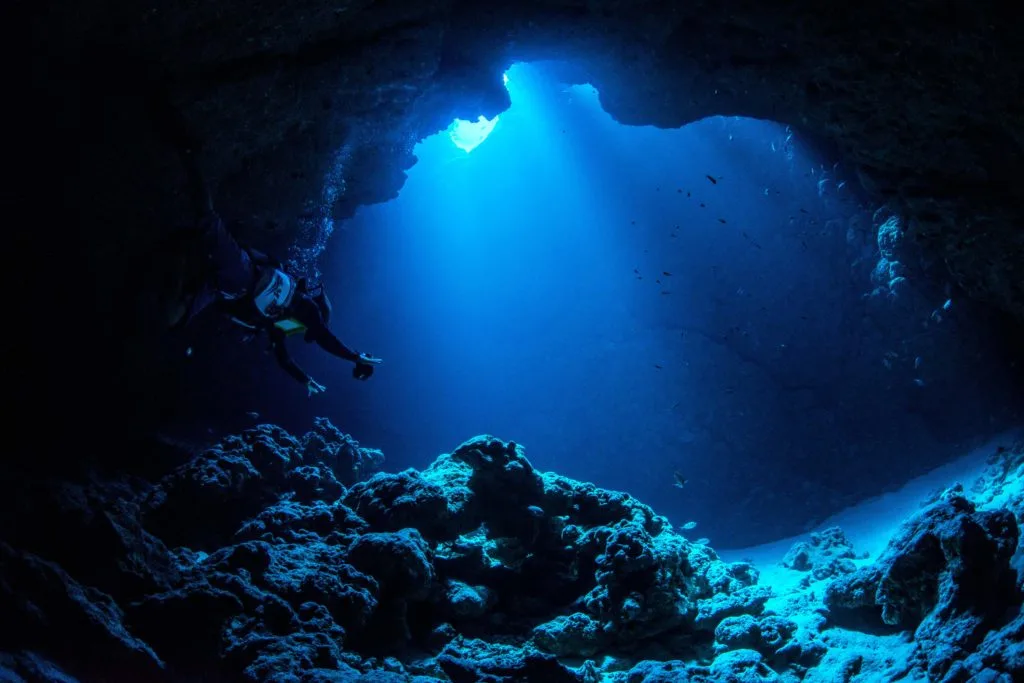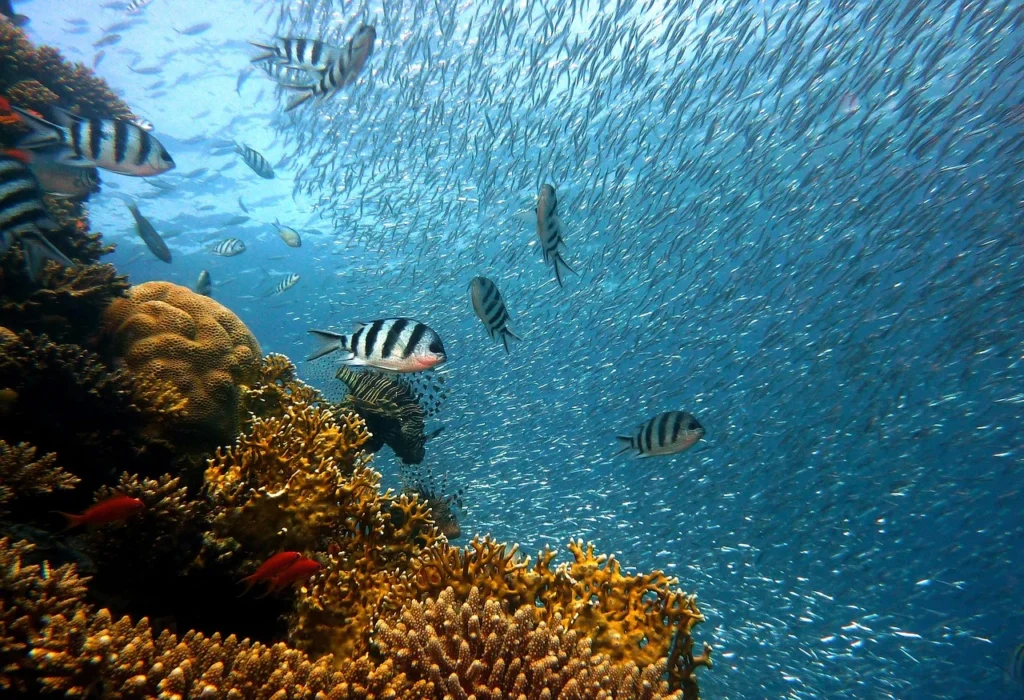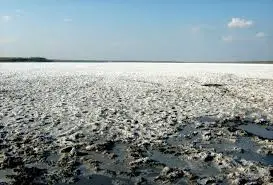Today we will learn top5 facts about ocean, that will increase the importance of ocean our life. The ocean is a biggest source of saltwater that covers lot of the Earth’s surface. It plays a important role in regulating the climate and providing resources of life for every beings.
5) Vastness Of Ocean

The vastness of the ocean is a concept that has unsolved mysteries on the earth. Ocean covers 70% of the Earth’s surface on our planet, which means it is equal to approximately 361 million square kilometers. In volume it is equal to about 1.332 billion cubic kilometers. The ocean is as expansive as, it is just as much also incredibly deep and diverse.
In this era despite advanced technology, only about 20% of the ocean’s floor has been explored in detail and other areas remain unexplored. The ocean is a source of various scientific research. Its aim is to understand the complex process, marine life, and the effects of human activities.
There are five major oceans
1) Pacific Ocean
The largest and deepest ocean in the world. It spread from the arctic ocean to the southern ocean, and from asia and australia to Americas.
2) Atlantic Ocean
The second largest ocean in the world. It spread from the arctic ocean to the southern ocean, and from americas to europe and africa.
3) Indian Ocean
The third largest ocean in the world. Bounded by asia to africa and australia.
4) Southern Ocean
The fourth largest ocean in the world. It is encircled by antarctica, but is recognized as a distinct ocean.
5) Arctic Ocean
The fifth largest ocean in the world. It is the smallest and shallowest ocean, situated around the arctic region, it is mostly covered by sea ice.
4) Ocean Depth

The ocean’s depths have been extensively studied, but a lot of the ocean’s areas remains unexplored, only 20% has been discovered by using sonar technology. Mariana Trench is deepest part of the ocean, it has been discovered and measured. It is about 10,929 meters deep.
Why Ocean’s Depth is Unexplored ?
Exploring and mapping the ocean’s depth is a challenging task due to the following factors.
1) Scale
In the above we have known the vastness and depth of the ocean. So mapping such a vast and deep area properly is a headache.
2) Pressure
There is a lot of pressure in the ocean’s depth. This means in the ocean’s deepest part, the pressure is equal to 1,000 times of sea level pressure. Due to this, it is difficult for equipment and vehicles to operate and to survive.
3) Darkness
There is a limit for sunlights to enter ocean depth. Sunlight only enter the ocean’s upper layers until a certain depth. After this there is darkness in the ocean.
It is true that 80% of the ocean’s depth remains unexplored. But continuous research is progressively unveiling the secrets of the ocean.
3) Ocean’s Life

The ocean’s life is fascinating, where tiniest plankton to the largest whales beings reside. Ocean life has been classified into several groups that are mentioned below.
1) Plankton
This classification contains the smallest and microscopic creatures that reside in the ocean’s currents.
2) Nekton
This classification contains swimming creatures such as fishes, whales, octopuses, dolphins, etc.
3) Benthos
This classification contains creatures that live in the deep sea such as crabs, oysters, starfish, snails, sea cucumbers, etc.
There are an estimated 2.2 million creatures in marine life. Many creatures are still undiscovered because more than 80% of the ocean remains unexplored yet.
Scientists have described whatever creatures, this includes various types of creatures. Experts continually discover new species, especially in the deep sea. Each expedition explores new and unknown creatures.
The ocean is home to millions of creatures, but about 25% creature’s lives depend on coral reefs. It is also known as “rainforests of the sea,” and it covers less than 1% of the ocean floor.
Strange and unique creatures reside in the deep sea, including whales, dolphins, and seals. The 100 feet long and 200 tons weighted blue whale is the biggest animal on the earth. Who reside in a large and deep ocean. Similarly sharks are another ocean’s top predators who survive in the ocean. We can’t imagine how unique creatures reside in the ocean. When they are explored then we know about that.
2) Ocean and Human Life

The ocean plays an physically and economically important role in human life. It impacts human life in various ways.
1) Heat Distribution
The ocean absorbs solar radiation and redistributes it. Whereby helping to regulate the earth’s climate. Besides, ocean’s currents play an important role by transporting warm water from the equator to the poles and cold water from the poles back to the tropics.
2) Carbon Sink
Humans emit CO2 while breathing and oceans absorb about 25% of it. Whereby helping to decrease the effects of climate changes.
3) Food Source
Ocean is a vast home of various organisms. Which provides a large range of fish and other seafood. It is the best source of proteins for humans. Which is providing a source of employment in fisheries and aquaculture industries to millions of people worldwide.
4) Tourism and Recreation
Oceans are a big source of transportation. It is a highway of global trade, from where about 90% of the world’s goods are transported. Coastal areas and islands have contributed to the economies of many countries for years.
Oceans are a source of scientific research, leading to discovery of new and unique things for humans.
1) Ocean Salt

There are lot of salt in the ocean. There is about 3.5% salt contained in the ocean by weight. This means every 1 liter of seawater contains about 35 grams of salt. Sodium chloride (NaCl) is a main component of ocean salt, but it also contains other minerals and elements.
The salt comes from the rocks to the ocean by rainwater. Rainwater carries minerals and salts to rivers by filtering the rocks, which eventually flow into the oceans. Salinity is not uniform throughout the ocean. It is typically higher in areas with low precipitation and lower in areas with high precipitation.
Sea salt is essential for marine life. Many marine organisms require specific salinity to maintain their life. The presence of salt occurs in various chemical processes in the ocean, including the absorption of gasses and the buffering capacity of water, which helps to maintain pH levels.
List of Facts About Ocean
- Vastness Of Ocean
- Ocean Depth
- Ocean’s Life
- Ocean and Human Life
- Ocean Salt
Top5 Dangerous Animals In The World